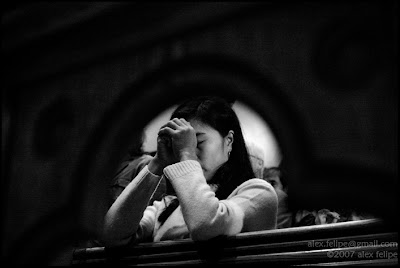 On Monday, October 22, 2007, The Centre for Philippine Concerns came out to support
On Monday, October 22, 2007, The Centre for Philippine Concerns came out to supportthe protest action outside the office of the UN Secretariat of the Convention on Biological
Diversity in Montreal. The Centre for Philippine Concerns, a member of the International
League of People's Struggles, opposes the New Zealand government's suppression of the
Moari and environmental activists and the "terrorist" labeling of these same acttivists.
These are the same tactics used by the Philippines in the suppression of Filipino activists.
Attached is the press statement of the Maori Solidarity Committee in Montreal.
Press Release
Protest New Zealand's bid for UN Human Rights Council
IN SUPPORT OF IMPRISONED ACTIVISTS IN NEW ZEALAND
Montreal. Last week in Aotearoa /New Zealand, Maori sovereignty
campaigners, environmental, peace and social justice activists, were
targeted in military-style raids under the post 9/11 Terrorism Suppression
Act, and are being painted in the media as terrorists. Police raided
homes, confiscated possessions and imprisoned at least seventeen mainly
Maori activists in a military-style operation. Amongst those arrested was
prominent Maori activist and community worker Tame Iti, who has been
denied bail along with eleven others.
"We are not terrorists - we've been terrorised" read banners on a 1500
strong demonstration on Friday in the small town of Whakatane, in
solidarity with the arrestees.
Protests this week continue across Aotearoa/New Zealand. In the USA,
Australia, Germany, Greece, and South Africa, people are denouncing New
Zealand's targeting of Indigenous sovereignty campaigners – and making
links between last week's raids, and an international trend of labeling
legitimate political dissent "terrorist".
On Monday, October 22, 2007 at 13h, we are protesting last week's raids,
and drawing attention to Canada and Aotearoa/New Zealand's hypocracy with
respect to the rights of Indigenous peoples.
Last month, New Zealand and Canada were among only 4 governments to vote
against the UN Declaration on the Rights of Indigenous Peoples. On 13
September 2007, the UN General Assembly adopted the Declaration on the
Rights of Indigenous Peoples (UNDRIP) with 143 member states voting in
favor, eleven abstaining, and Australia, Canada, New Zealand and the US
voting against the Declaration. New Zealand is now waging a militarized
campaign against Maori sovereignty, environmental and social justice
activists. Shamelessly, New Zealand announced its candidacy for the UN
Human Rights Council for the period 2009-2012 this past Friday.
Maori advocacy for self-determination was portrayed a domestic "terrorist"
threat in Aotearoa long before 9/11 and long after colonization of the
nineteenth century.
We stand in solidarity with those in Aotearoa/New Zealand, like here in
Canada, who continue to be terrorized and persecuted by legislation that
criminalizes dissent, particularly those most affected – Indigenous
Peoples and immigrants of colour.
New Zealand repression echos events here in Canada
New Zealand police raids echo the treatment of Indigenous activists in
Canada. Similarly, so-called anti-terror laws are used to label dissent –
especially the dissent of Indigenous peoples – as criminal and terrorist.
Internationally, Canada and New Zealand have consistently attempted to
block the UN Declaration on the rights of Indigenous Peoples.
This summer, Tyendinaga Mohawk activist Shawn Brant was arrested after
blockades of rail lines and highways on Tyendinaga land. A leader in his
community's struggle, he has been portrayed as a criminal and terrorist.
Like Tame Iti, Shawn was jailed in July 2007, and was denied bail until
the end of August.
Communities in the Mohawk territories of Kahnawake, Akwesasne, and
Kanehsatake are all too familiar with racist government repression and
attacks. In Kahnawake in 1990 and in Kanehsatake in 1994 the Canadian
government used the military to attack and repress Mohawk people. In 2006,
we saw heavy police repression in Six Nations when Indigenous activists
reclaimed their land. This summer's police crackdown after the June 29th
days of action are proof that colonialism is alive and well in Canada in
the 21st century.
Repression hidden beneath laws to supposedly fight 'terror' has become all
too familiar.
Demands
We call on people to expose and oppose the New Zealand government's
repressive actions. We strongly oppose New Zealand's bid for a place on
the UN Human Rights Council for its clear suppression of the legitimate00
right to dissent, and for the ongoing violent repression of the Maori
people. We demand in that New Zealand government release those arrested
and apologize to the Tuhoe.
WHEN: Monday, October 22, 13h
WHERE: Outside the UN Secretariat of the Convention on Biological
Diversity, 413, Saint Jacques Street, Montreal
CONTACT: Maori Solidarity Committee 514-839-4661





